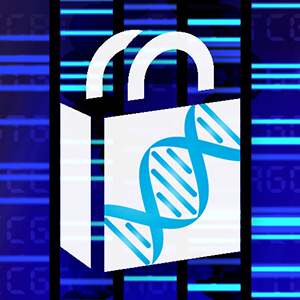
23andMe is relaunching its direct-to-consumer genetic tests in the U.S. with the approval of the FDA to provide consumers “carrier status” information on 36 genes that can cause rare diseases. I am optimistic that DTC genetic testing will expand its impact over time, ultimately having a tremendous impact on human health globally.
Today, genomics industry maverick, 23andMe, is relaunching its direct-to-consumer (DTC) genetic testing in the U.S., with the approval of the FDA to inform consumers whether they carry a genetic variant for one of 36 rare diseases that could potentially be passed on to their children. In addition to this carrier status information that now meets FDA standards, reports from the newly launched 23andMe test will include information on wellness, traits, and ancestry.
A big positive step forward
For the genomics industry as a whole, this is a significant step forward as the FDA’s decisions have global influence. Indeed, this is a landmark FDA decision, as it is the first time ever that the FDA has allowed such a broad spectrum of medically relevant genetic information to be provided directly to consumers. Both the FDA and 23andMe deserve credit for working through the challenges that, less than two years ago, resulted in the FDA ordering 23andMe to stop marketing its genetic testing kits in the U.S. That the FDA—one of the world’s most thoughtful medical regulatory agencies—has come so far so fast is indicative of the potential it likely sees in DTC genetic testing improving the health of U.S citizens.
A larger journey ahead for direct-to-consumer genetic testing
Moving forward, there are at least two important directions that—in collaboration with the appropriate regulatory agencies, such as the FDA—I think DTC genetic testing will advance:
• DTC genetic testing will expand its reach globally; and
• DTC genetic testing will likely expand the medical impact of its reported results.
DTC genetic testing will expand its reach globally.
Catalyzed by demand for improved health, DTC genetic testing services will inevitably become accessible to much of the world’s population over the decades to come. To be successful, these services will need to be customized by geography and culture and approved by the appropriate local governmental agencies. While the genome is shared by all humans, it is naïve to think that DTC genetic testing services will be the same across all people living anywhere. It is incumbent on industry participants to align their DTC reports and services to best meet the needs of the specific customers in specific countries and geographies—and to do so in a spirit of cooperation with the appropriate governmental health regulators.
DTC genetic testing will likely expand the medical impact of its reported results.
As noted, today’s FDA approval for 23andMe to be able report on carrier status is a significant step forward, but more health data remains to be gleaned—and reported—from an individual’s genomic data. From 23andMe’s announcement, you can see the foreshadowing of what may ultimately be possible:
About [23andMe’s] Carrier Status Tests
[23andMe’s tests] can be used to determine carrier status in adults from saliva collected using an FDA-cleared collection device (Oragene DX model OGD.500.001), but cannot determine if you have two copies of the genetic variant. Each test is most relevant for people of certain ethnicities. The tests are not intended to diagnose a disease, or tell you anything about your risk for developing a disease in the future. On their own, carrier status tests are not intended to tell you anything about the health of your fetus, or your newborn child’s risk of developing a particular disease later in life.
Clearly, working with regulators such as the FDA, and others, such as thoughtful genetic counselors, there is a future potential for the right service to be able to report on people’s risk for developing specific diseases. Informed, health-conscious consumers are very likely to demand access to this information—and millions of individuals have already paid significant sums out of their own pockets to have their genomes sequenced and analyzed. Indeed, from news reports covering 23andMe, we know that when ordered by the FDA to stop providing health information such as the disease risk, their rate of new customer sign-ups dropped by more than half.
I am very optimistic that DTC genetic testing will expand its impact over time, overcoming skepticism and ultimately having a tremendous impact on human health globally. I am proud that our team at WuXi NextCODE will be a part of making this exciting future happen, and today I am especially proud that WuXi Ventures recently invested in 23andMe, making us active supporters of its current and noteworthy success.

